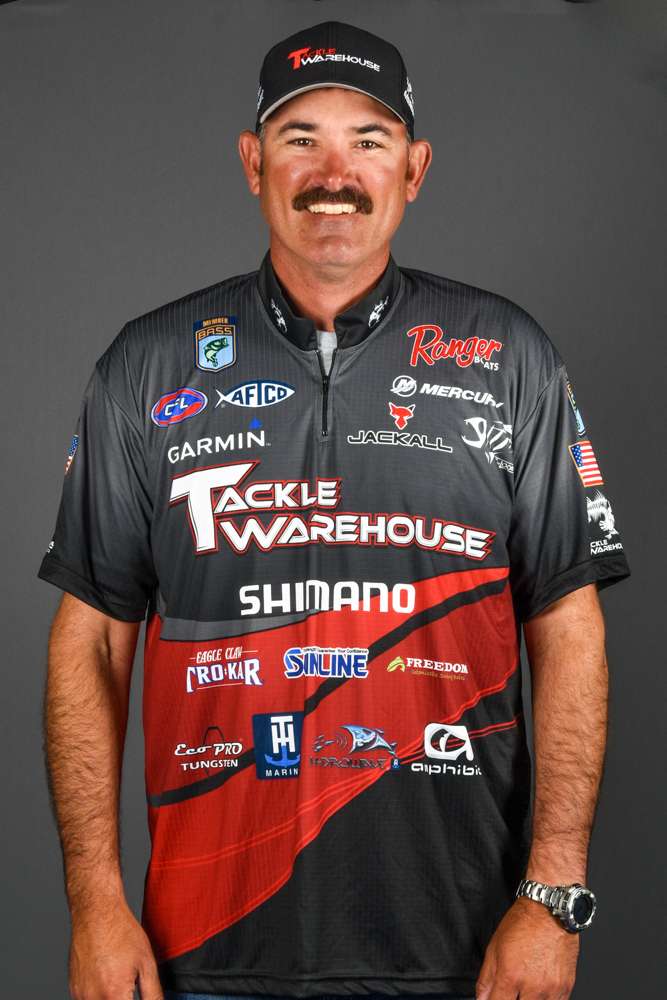
When you finish 82nd in the Toyota Bassmaster Angler of the Year standings after qualifying for four GEICO Bassmaster Classics in the previous six seasons, your friends and sponsors have just one question.
“What happened?”
They don’t ask it the way they’d ask that same question after you weighed in 30 pounds. They ask it like there’s been a death in the family. They almost whisper it, as though saying it out loud would hurt too much.
“What happened?”
They ask like they’re really asking, “Are you OK?” or “Are you going to make it?”
Of course, I’m OK, and of course I’m going to make it. I plan to learn from a tough 2017, adapt to what I’ve seen and move on.
As for what happened, that’s a tougher question, but one I can answer.
The short answer to what happened is that I made some mistakes early in the season and got off to a slow start. From there, I tried too hard to overcompensate. Instead of turning things around, I pressed too hard and my bad fishing started to snowball. I lost the confidence that’s absolutely critical for a Bassmaster Elite Series angler to compete. One bad tournament turned into two, then three, then … well, you get the idea.
Pretty soon you wake up and find yourself in 82nd place. Whatever hopes you had for the season are gone, and you look for a way to take something positive from a very negative year.
That’s where I am, and it’s OK. I learned something, and I like to think that I’ll be better and stronger for having gone through the year I just had.
Sixty-seventh at Cherokee turned into 104th at Okeechobee. Things got a little better in the middle — I had a top 10 at the Classic and finished in the money three other times — but I never got rolling and ended the year about the same way I started, 104th at Champlain and 82nd at St. Clair. Talk about ugly.
So, how did that happen? How did I make the early mistakes that led me to struggle all year?
I started the season at Cherokee Lake telling myself I needed to catch fish deep to compete when that’s not my strength. I’m basically a shallow water power fisherman. When the fish are in 6 feet of water or less, I’m a threat. If they’re a lot deeper, I can still catch them, but I’m not as strong as a lot of the other guys on tour.
And when you’re fishing so many different venues — all over the country — you learn pretty quickly that every tournament is not going to set up well for your style and skill set. You have to go for it when things are right and avoid a collapse when they’re not. As much as possible, you need to fish your strengths … and I didn’t do that. Some guys did well at Cherokee by fishing shallow. Once I realized I could catch quality fish in the shallows, it was too late.
One bad tournament can lead to two if you try to compensate too much. At Okeechobee, I wasn’t just trying to have a good tournament, I was trying to make up for the Cherokee bomb.
Two bad tournaments into the season, you start wondering if you can still qualify for the Classic. Well, you can, but you get there by stringing together a series of good days, not by pressing too hard and trying to catch 100 pounds in one day. With each tough day, it gets a little harder to break the cycle.
What’s extra frustrating is that I know I have to fish my strengths to be successful. That’s what I did in 2007 and 2014 to post top 10 finishes in the AOY race. I knew it then, I talked about it then and I learned a lesson then … but it’s apparently a lesson that needs to be repeated before it can really stick. I learned it again this year, and I hope I don’t have to learn it the hard way again.
It may seem hard to believe, but there’s a very fine line between the top 20 Elite anglers and the bottom 20 Elite anglers. That difference is entirely mental, but it’s not all about intelligence. It’s just as much about confidence and mental toughness.
When it comes to sports, I’ve always been really streaky. In basketball, I could be as cold as ice one night, then bury 10 straight long-range jumpers the next. For me, it’s all about confidence, and holding onto confidence is a little like squeezing sand. As tight as you want to grip it, it can still slip through your fingers.
I’ll start the 2018 season with confidence, knowing I have to fish my strengths to be successful.
As for the elephant in the room — What happened to me in 2017? I learned from it, and I’m over it.

